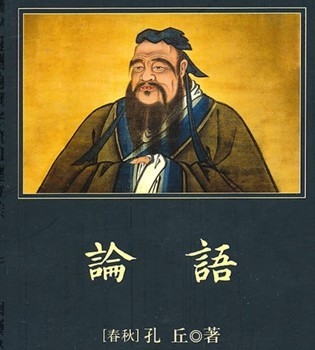
第一章 学而篇(15)
子貢曰:“貧而無諂,富而無驕,何如?”子曰:“可也。未若貧而樂,富而好禮者也。”子貢曰:“《詩》云:‘如切如磋,如琢如磨。’其斯之謂與?”子曰:“賜也,始可與言詩已矣!告諸往而知來者。”
Zi Gong said, "What do you pronounce concerning the poor man who yet does not flatter, and the rich man who is not proud?" The Master replied, "They will do; but they are not equal to him, who, though poor, is yet cheerful, and to him, who, though rich, loves the rules of propriety." Zi Gong replied, "It is said in the Book of Poetry, 'As you cut and then file, as you carve and then polish.' - The meaning is the same, I apprehend, as that which you have just expressed." The Master said, "With one like Ci, I can begin to talk about the odes. I told him one point, and he knew its proper sequence."
【原文】
子贡曰:“贫而无谄①,富而无骄,何如②”?子曰:“可也,未若贫而乐③,富而好礼者也。”子贡曰:“《诗》云:‘如切如磋,如琢如磨④’。其斯之谓与⑤?”子曰:“赐也⑥,始可与言《诗》已矣,告诸往而知来者⑦。”
【今译】
子贡说:“贫穷而不巴结奉承,富贵而不骄傲自大,怎么样?”孔子说:“可以了。但还不如贫穷而仍然快乐而忘其贫?,富贵而仍然爱好礼义?而忘其富?的人。”子贡说:“《诗经》上说:‘好像切削,好像刀锉,好像雕琢,好像研磨’说的就是这个意思吧!”孔子说:“子贡啊,现在可以和你谈论《诗经》了。因为告诉你过去,你就能够推知未来”。
【注释】
①谄(chǎn):谄媚奉承。②何如:怎么样。③未若:还不如。④如切如磋(cuō),如琢如磨:语见《诗经.卫风.淇奥篇》,意思是切割骨角、象牙、玉石,然后加以细细磨制,雕琢,成为器。⑤斯:这一个。⑥赐:子贡名。⑦诸:之于,此处相当于“之”。往:过去。来:未来。
【评点】
本章是孔子教育弟子做人要不断进取,精益求精。
贫而谄,富而骄,是常人的弱点,贫而不谄、富而不骄虽进了一大步,但仍只是安分守已而已,是消极的有所不为。贫而乐、富而好礼,则超脱于贫富之上,无论贫富都积极地有所为。显而易见,对话中老师的吐词,比弟子的见识高远而积极进取。
子贡经过孔子的启发,联想到《诗经•淇奥》的比兴,表明他聪明过人和要求上进,受到老师的赞许。这场对话,为人们指出了为学、做人必须精益求精、不断攀登的道理。












